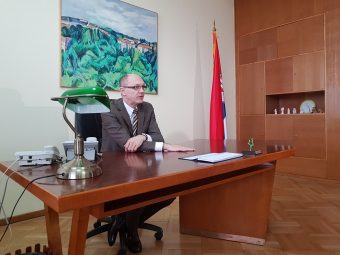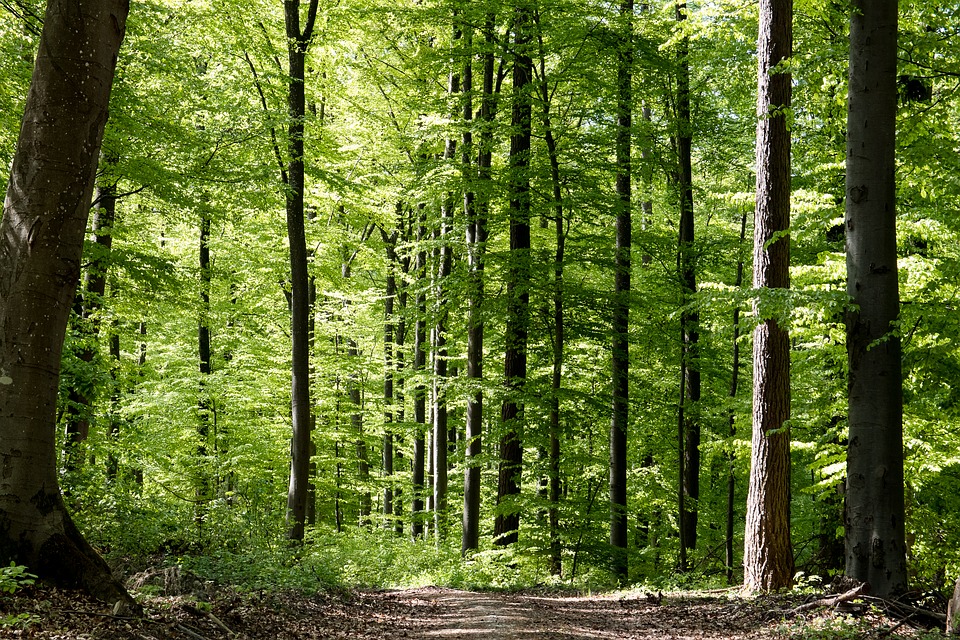
The term “sustainable development” origins from forestry and in short, it means that a man can cut down as many old trees as he has planted. In an attempt to come up with an answer to the question whether we have cut down too many “trees”, we spoke to Goran Trivan, the Minister of Environmental Protection.
EP: When we talk about harmful effects of human impact on the environment, would you say that we are already cutting the branch that we are sitting on?
Goran Trivan: We are cutting it very successfully. It does not sound optimistic, but it is realistic. If you take into consideration that civilization has been dealing with a sustainable development strategy for fifty years, as well as the results that have been achieved in the meantime, the fact is that there is a shift in various areas, from construction to CO2 emissions. However, these are sporadic successes that are actually the paradigm of failure. The process of preserving the environment has been going on for fifty years, and the mean annual temperatures are growing. Although I am an optimist by nature, I am very realistic about this. You need to observe the past uncompromisingly in order to know what to do. In my opinion, civilization makes catastrophic mistakes that cannot be corrected in a short term. Here we go back to the concept that ecology is proud of – think globally, act locally. It is necessary to return to the roots and nature, actually the life itself. In that sense, afforestation is an ideal solution. This is the simplest, cheapest and most effective way to mitigate the effects of climate change. We should bear in mind that climate change is not only a consequence of man’s actions but also that they are happening for millions of years on the planet beyond human influence. Nevertheless, a man certainly made a decisive contribution to making those changes tangible and visible more quickly.
While I was City Secretary for Environmental Protection in Belgrade, I could experiment with this idea of afforestation. In the period of six years, we planted more than 700 hectares of new areas in Belgrade. It is not enough, but it’s certainly much better than doing nothing. This effect will be felt by our children in ten years, if we take care of every tree and if we replace each tree that dries out. That does not even cost much.

EP: Do you feel that the public is sufficiently familiar with what you achieved so far on the position of the City Secretary for Environmental Protection?
Goran Trivan: I did not work with the goal that someone notices and acknowledges my efforts, but out of the conviction that any positive change that I bring into living environment continues to live. However, my team and I realized that our activities were not well known to the public. We have been slowly changing our approach for several years now so that the result of our effort does not remain within the limits of a narrow circle of people. We are now coming to my favourite point of view – without the media and the civil sector, there are no significant results.
Goran Trivan: There are two categories of people in each city. One category is quite ordinary and honest citizens, and the other is completely honest and unusual citizens who are in office and they must know what we have achieved so far. They also must know that nothing starts with them, but that we all replace people who already achieved something before us. So I inherited the previous secretary Branislav Bozovic who initiated the adoption of afforestation in Belgrade. And he is not even a forest engineer, but a geologist, but he obviously knew what he was doing. I relied on the results of his work and continued to afforest Belgrade. The result is obvious, so we all have to realize that we are not islands and that nothing starts with us. We are part of series.
EP: To what extent is the concept of sustainable development applicable in Serbia and what are the means for its implementation at present?
Goran Trivan: I do not like to use the syntagm sustainable development because the very strategy of sustainable development is compromised at a global level. However, development can exist in a practical way, without great philosophy, as I did through afforestation in Belgrade. Serbia lags behind the developed European countries in the field of sustainable development for twenty-five years. This can sound depressing, but it can be inspiring as well. We were observing what the developed countries were doing in the past few decades, we realized what they had skipped, and so I can say that we have the opportunity to cross the road, they travelled for a long time, in two or three cascades. And that will happen. In technological terms, it took them a long time to overcome all the challenges. We will not need so much time. For example, a Fund for energy efficiency was established in Belgrade, that you could not even dream about ten years ago. The facades are financed by this Fund – which means insulation, numerous other energy efficiency measures, and ultimately aesthetic design.
Interview by: Tamara Zjačić
Read the whole interview in the new issue of the Energy portal Magazine on SUSTAINABLE DEVELOPMENT, March 2018



